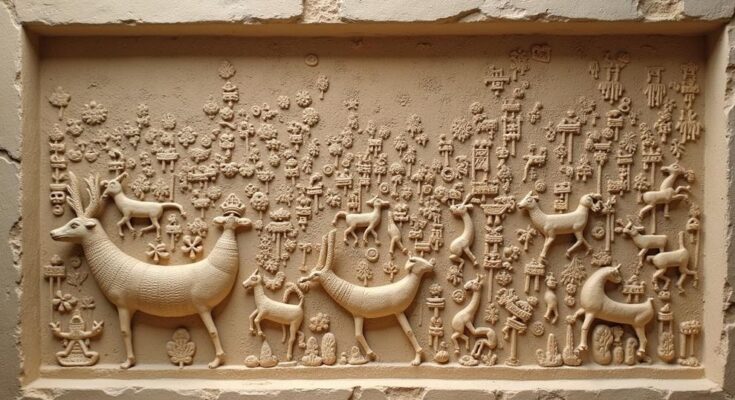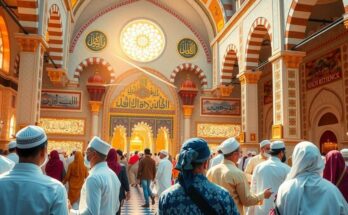Taxila, a UNESCO World Heritage site, is undergoing vital restoration efforts led by Punjab’s Archaeology Directorate to preserve its cultural heritage. Inspections by officials Zaheer Abbas Malik and Muhammad Hassan focus on maintaining ancient structures and enhancing visitor experiences, aligning with the Chief Minister’s vision to promote cultural tourism and economic development in Punjab.
In a recent initiative to safeguard one of the world’s most meaningful archaeological treasures, Taxila—a UNESCO World Heritage site—has become the focal point of ongoing restoration efforts. Led by Zaheer Abbas Malik, the Director General of Archaeology in Punjab, and accompanied by his colleague Muhammad Hassan, these officials embarked on a crucial inspection of the Taxila Museum and adjacent heritage locations to assess the progress of preservation activities. Their visit underscored the vital task of maintaining the integrity of ancient structures that tell the story of a once-great civilization. Reviews included examining the essential upkeep of archaeological artifacts and the overall management of these invaluable sites to enhance visitor experiences. During the visit, Mr. Malik expressed the importance of sustaining the historical significance of Taxila, stating, “The sustainable development of these cultural assets would allow future generations to appreciate and understand Pakistan’s rich heritage.” This holistic approach emphasizes not only preserving history but also ensuring that local and international tourists can access and learn from these sites. The initiative aligns with the vision of the Chief Minister of Punjab, who is passionate about transforming the province into a cultural and historical tourism hub. The strategic investment in sites like Taxila is set to boost tourism, spur economic growth, and foster national pride in Pakistan’s illustrious past. The commitment to these restoration efforts reflects a broader strategy to intertwine sustainable tourism with cultural preservation, presenting a pathway for future generations to delight in the richness of their heritage.
Taxila, an ancient city rich in history and culture, emerged as a significant center of learning and civilization. It is renowned for its archaeological significance, with structures and artifacts reflecting a blend of various influences over centuries. As a designated UNESCO World Heritage site, it stands as a testament to the region’s historical prominence, necessitating ongoing efforts for its preservation. This underscores the need for responsible management of these invaluable heritage sites to ensure they remain intact for future generations to explore and understand. Recent restoration efforts by the Punjab Archaeology Department highlight the importance of such initiatives not only to maintain physical structures but also to keep history alive for educational purposes.
The ongoing restoration efforts at Taxila signify a profound commitment to preserving Pakistan’s cultural heritage for the enrichment of future generations. With a focus on sustainability and accessibility, these initiatives aim to balance the preservation of historical sites with the need for educational tourism. As the Chief Minister of Punjab champions these efforts, Taxila stands poised to not only retain its historical essence but also to thrive as a vibrant center of cultural tourism in the years to come.
Original Source: www.nation.com.pk



